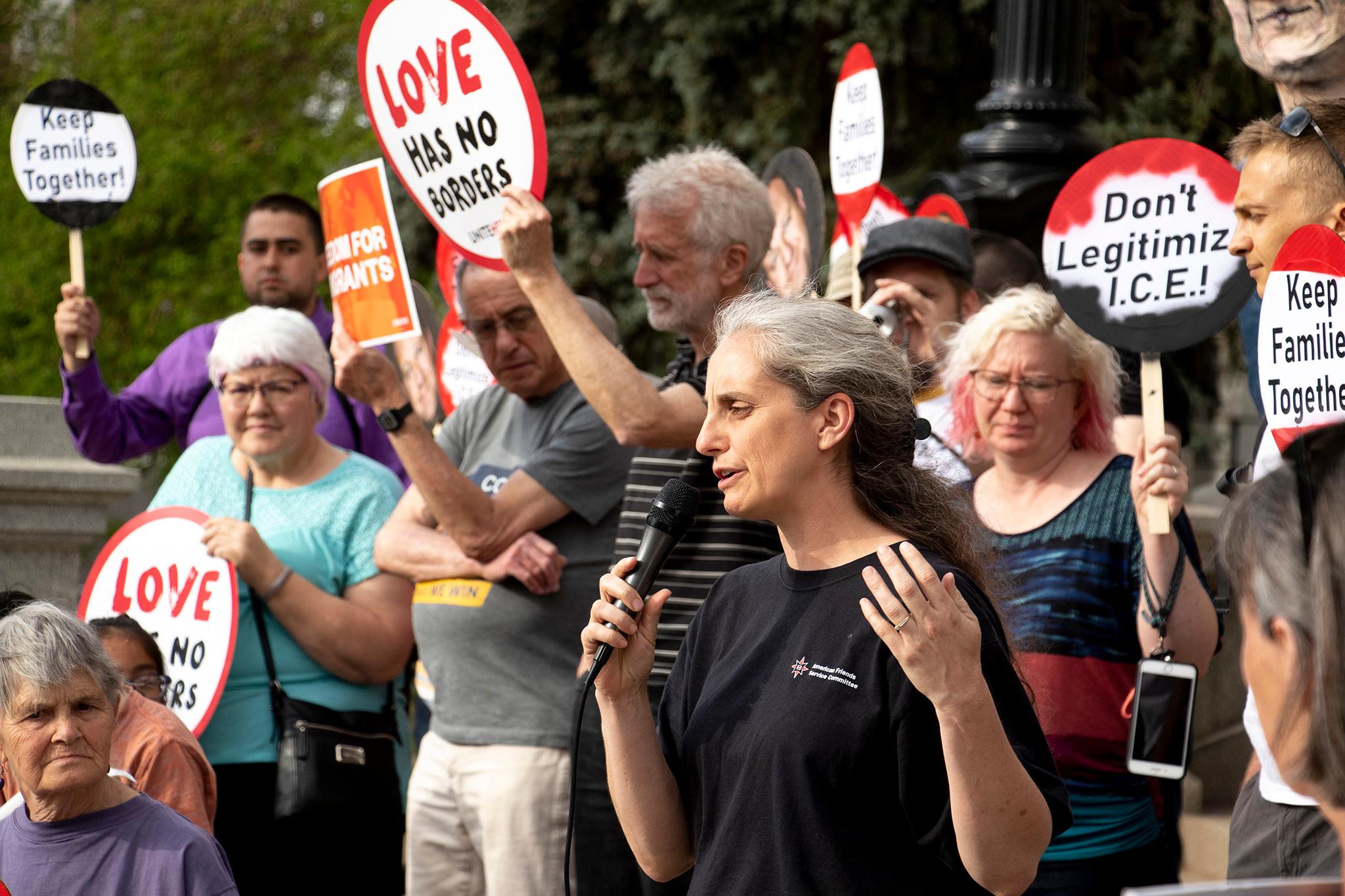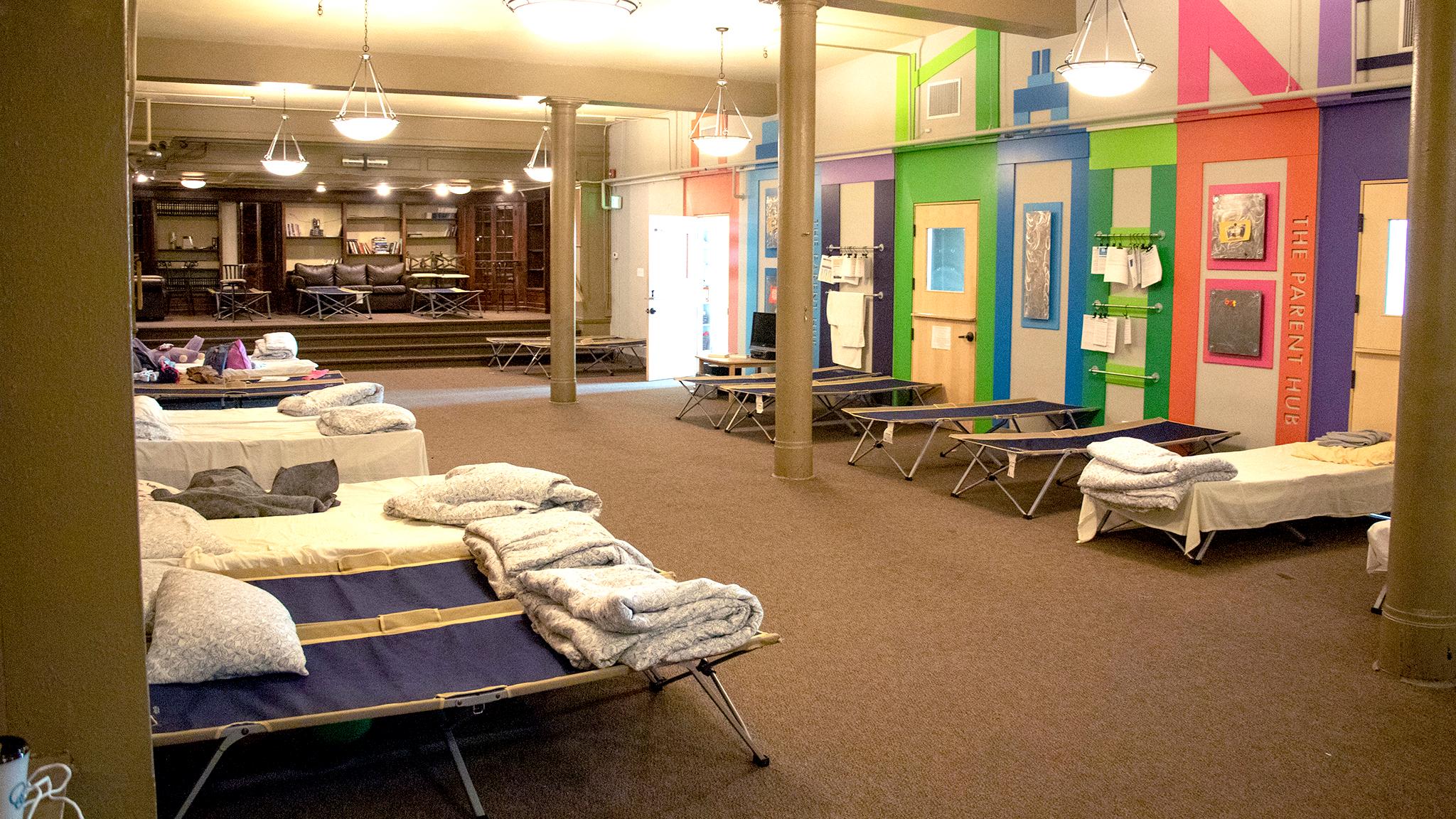In September, a Venezuelan family that had recently crossed into the U.S. ended up in Denver without any place to go.
"They were frightened and confused and didn't know where they were or where they were supposed to go," Cathy Alderman, spokesperson and policy officer for the Colorado Coalition for the Homeless, told us.
She said the family had been released from a detention facility in Texas and sent to Denver's Red Cross. The organization was neither expecting nor prepared to receive them.
They spent a night in a shelter for people living in homelessness before the CCH and a network of immigration nonprofits were able to connect them with the right kinds of resources, Alderman told us. The Associated Press reported their experience might be part of a bigger story, that border patrol officers may be sending newly arrived families to places without resources to accept them.
This happened right around the time Florida Gov. Ron DeSantis chartered planes and sent migrants from Texas to Martha's Vineyard, Alderman said.
"My flags went up immediately," she told us. "Luckily, it doesn't seem tied to that, but it all feels uncomfortable."
Matt Mueller, executive director of Denver's Office of Emergency Management, said there's a possibility that families hoping to live in the U.S. could be sent here through another political stunt. But there's a bigger reason why he recently directed city resources like cots, blankets and first aid kits to new shelters for migrants in Denver.
President Joe Biden has been trying to overturn Title 42, a Trump-era policy that cited pandemic concerns as pretense to stop families and individuals from entering the country and applying for asylum. If he succeeds, there could be a huge increase in the number of people who've been waiting in Mexico for months coming into the U.S. That would likely overwhelm nonprofits close to the border -- and some asylum-seeking migrants could arrive in Denver.
Whether it's a bus sent by a Republican governor or groups of people who've made their own ways to Denver, Mueller wants to be ready. The city's homeless shelters are already strapped, and he and Alderman both said they're not set up to deal with migrant families' specific needs.
"I've heard numbers as high as 18,000 people that are amassed at the border, ready to come across potentially, if Title 42 is repealed, and we don't know exactly when that's going to happen," Mueller said. "Ultimately it's in everybody's best interest that we support our nonprofit organizations and do what we can to help manage this issue. Because if we ignore it, then it could become something even greater."
Families, he added, have already been arriving to the city for months.
Here's what the city has done so far:
Mikayla Ortega, spokesperson for Denver Emergency Management, told us they relocated emergency supplies last week "to a local non-profit partner to proactively set up a 72-hour shelter."
That includes 100 cots, 230 cot covers, 200 blankets, 200 hygiene kits, 2 cell phones and 6 computers.
"The shelter site is being set up and we anticipate that it will be up and running within the coming week," she told us. "In the interest of safety and security of the site and our non-profit partners, we will not be releasing the name publicly."
Immigration activists have been pushing for statewide infrastructure, but their conversations with the state didn't go as well as they hoped.
This year, Congress set aside $150 million that FEMA could grant to governments, nonprofits and faith organizations who want to provide food, shelter and transportation to migrants.
Jennifer Piper, an advocate with the American Friends Service Committee who helped shelter 55 people bused to Denver from New Mexico in 2019, said she and representatives from other local immigration groups have been asking Gov. Jared Polis' administration to apply for some of that FEMA money.
Denverite asked Polis' office if they would consider applying for federal funds, or if providing state funding was an option.
In response, a spokesperson said that "The administration has been in touch with community-based organizations and is monitoring this situation while working with our federal partners to see what, if any resources may be available."
Piper told us none of the nonprofits she's connected to has the bandwidth to handle the application process, nor the know-how to run a shelter. They do know how to speak to families, how to work sensitively with people who've gone through traumatic situations and how to get them pointed towards their destinations. Meanwhile, groups like the Colorado Coalition for the Homeless know how to operate shelters but doesn't specialize in serving immigrants.
Piper said she hoped the state would help bring all of these groups together to create a permanent shelter system that could be activated when needed.
"The issue is, this FEMA funding basically falls right in between everyone's area of capacity and expertise. So we're like: Please, state of Colorado, pull down this money. You have the Office of Emergency Management that has places all over the state that you could stand up smaller shelters, instead of bringing everyone to Denver," she told us. "A lot of the people who are coming, quite a few of them, are going to Silverthorne or Longmont or Loveland or Fort Morgan."

Though she said the Colorado Office of Emergency Management and Office of New Americans held a number of stakeholder meetings to discuss the possibility, nothing has really happened.
"The Office of New Americans, which is very small, has been trying to connect the effort to some other funding partners and see what else could be done. But no one in Colorado has pulled down this free money," Piper said. "It's also disturbing to me, because I feel like if another governor sent us a bus of people tomorrow in some kind of political stunt, I think the response from the state would be different. And that's what's most disappointing to me, is that I feel that elected officials at all levels and of all stripes are utilizing the folks who are coming across the border, seeking safety and refuge in the U.S., as pawns in a larger rhetorical debate in an election season."
While the Office of New Americans didn't respond to questions about this, Micki Trost, with the Colorado State Emergency Operations Center, confirmed they've been "facilitating coordination calls" with nonprofits and would "continue to coordinate with agencies to prepare if needed."
Mueller told us FEMA's $150 million is "not very much money" to address the issue nationwide, "and it's already been mostly tapped." In the meantime, he said Denver is in contact with groups like Piper's, the state and surrounding local governments to make sure everyone is on the same page.
Still, Piper said immigration issues aren't going away anytime soon, especially as climate change continues to destabilize communities and pull people across borders. This moment is an opportunity to make sure Colorado establishes a humane and cohesive system for the long haul, she told us.
"It is not only thinking about what is the welcome that we want to offer other people, but what's the welcome we want to receive. We live in a state that is dependent on a very finite water source in a rapidly changing global climate, and it may not be very long before all of us are also on the move," she said. "It's an opportunity to think of: What is the welcome that I would hope for my family if no snow fell next year in the Rockies?"











